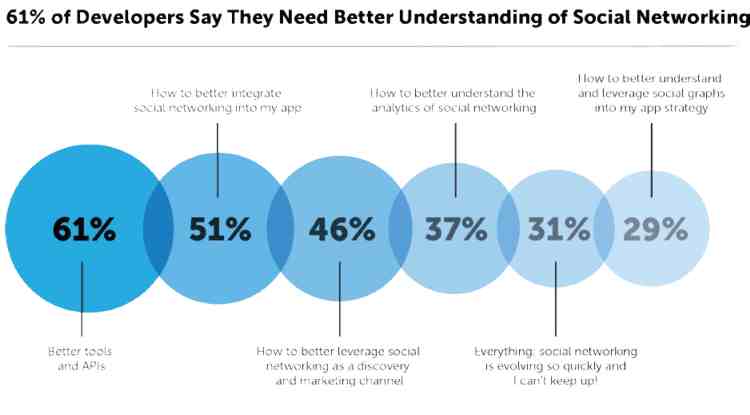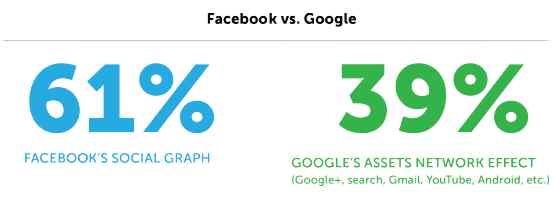| Facebook vs Google - Developer's Take |
| Written by Janet Swift | |||
| Wednesday, 21 March 2012 | |||
|
The majority of developers want a better understanding of social networking. In the face-off between the two dominant players, while at first glance it seems developers choose Facebook over Google, there's more to be said.
These finding come from the latest Appcelerator/IDC Mobile Developer Report, specifically from a follow-up on 484 respondents of the more than two thousand Appcelerator Titanium developers initially surveyed.
Asked "what would you like to know more about regarding social networking",
In the Q3 2011 survey six months ago 66% of developers thought that Google+ could catch up to Facebook. So this survey looked in depth at developers perceptions of Facebook versus Google+.
The question in this instance was "What do you think will play a bigger social strategyrole for your company in 2012, Facebook's social graph or the network effect of Google's assets?" With 61% selecting Facebook's social graph you might think this was an overwhelming vote of confidence in Facebook but Appcelerator points out that, given Facebook’s nearly 900M users and over 425M mobile users and the excitement surrounding its pending IPO, the fact that 39% opted for Google is the interesting result. The report comments: Developers perceive something that many observers don’t: Google’s assets are often more immediately valuable and/or more easily integrated than Facebook’s social graph. Google offers the combined network effects of search, YouTube, Gmail, Google Maps, Android, Android Market, Google Docs, AdMob, and now Google+. One example of how large Google’s footprint is includes Google Maps, which is prominently preloaded onto iPhones and virtually all Android devices, and therefore increasingly integrated into iOS and Android apps. YouTube is commonly integrated into mobile apps and is often cited as one factor contributing to mobile network capacity constraints. With 200M+ Android handsets and tablets shipped in 2011, Google itself is clearly gearing up to leverage its network effects, noting that its privacy policies have recently changed to allow sharing of user data across its services. Answers given to questions probing their perceptions showed 45% of developers thought Google APIs easier to integrate compared to 22% who thought that Facebook APIs are easier to integrate and 45% thought Google is innovating faster than Facebook, compared to 20% who held the opposite viewpoint. This survey should be encouraging to Google. Let's hope it spurs Google into making available a more sophisticated and functional API for developers to use to integrate Google+ into their apps. Then perhaps Google+ can indeed catch up with Facebook as far as developers are concerned. More InformationAppcelerator/IDC Q1 2012 Mobile Developer Report Related ArticlesGoogle+ opens up - a new Hangouts API Google+ Devs Gain Google+ Page
Comments
or email your comment to: comments@i-programmer.info
To be informed about new articles on I Programmer, subscribe to the RSS feed, follow us on Google+, Twitter, Linkedin or Facebook or sign up for our weekly newsletter.
|
|||
| Last Updated ( Wednesday, 21 March 2012 ) |



